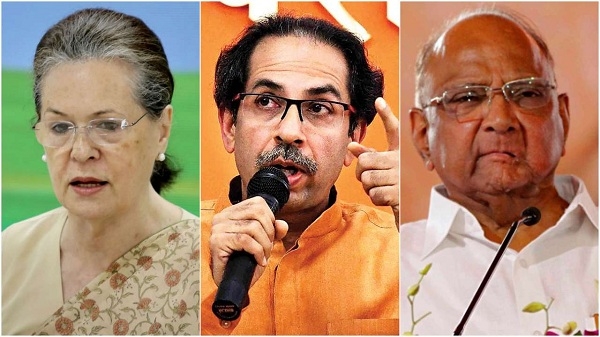Opposition must give away petulance for Greenfield Growth
Total Views |
Political parties that are petulant about the reverse migration of their claustrophobically overcrowded vote banks in metro cities and state capitals and are stingy about their connections within the brown-field industrial ecosystems around them will need to give up this ‘anti-industrial ecosystem’ attitude.
For decades, setting up an industry in India was an arduous undertaking. The ‘anti-industry’ sentiment stemmed from the enormous Soviet-style red-tapism, the insatiable politico-bureaucratic nexuses, the askew environmental regulations as witnessed during the shutting-down of the Thootukudi copper plant, and the anti-industry political sentiment as reckoned from the Singur controversy.

One doesn’t need to endorse successive Narendra Modi administrations’ world-renowned effectiveness in kickstarting a sustainable socio-economic growth trajectory with a pro-industry and pro-environment stance. India’s ease of doing business indicators have performed well over the past six years. Today, none of the Indian states, unless managed by an unruly political satrap, want to let go industries. Those erratic unruly political entities, which usually bend-over-heels towards ultra-ideologies or are under supranational influences, are also being tackled through lawful democratic means. Therefore, apart from a few tiny pockets, India’s large swathes have gotten rid of anti-industry sentiment successfully. Typical of a federal democratic structure, states are vigorously competing with each other in attracting industries. Industries, too, are conscious about the states they wish to locate their units and are mindful of holding eco-friendly credentials. All in all, this sustainable competitiveness is a good omen. But that is not it.
A scattered cohort of few regional political parties are taking an abrasive and unscientific stance against the Bharatiya Janata Party (BJP)-ruled state governments, and the BJP-led National Democratic Alliance (NDA) at the center. In 2018, a political controversy erupted when the Ministry of Defence was mulling to organize Aero India – the country’s top air show – from Yelahanka Air Force Station in Bengaluru to Bakshi Ka Talab Air Force Station in Lucknow. The then Janata Dal-Secular and Indian National Congress alliance wailed that Karnataka has been the country’s foremost defense hub since India’s independence and is therefore an apt venue for the show. It then wrongly accused the central government of steadily taking away defense projects that could have come to Karnataka.
A similar controversy was created when the Maha Vikas Aghadi of Maharashtra, in early 2020, lamented the Ministry of Finance’ decision to establish the International Financial Services Centre (IFSC) within the confines of the Gujarat International Financial-Tech (GIFT) City. They complained that the IFSC was deliberately not set in Mumbai, the nation’s financial capital. More recently, the same Maha Vikas Aaghadi expressed cynicism about the Government of Uttar Pradesh’s construction of a new media and entertainment industry ecosystem in Greater Noida. As they put out, it will take away the sheen from a similar ecosystem, colloquially called Bollywood, which has existed in Mumbai since India’s independence. Political parties, mainly the opposition to the BJP and the NDA, are stoking controversies by feeding on an anti-industrial ecosystem sentiment without realizing this will be detrimental to their political future.

The last-mile utility supplies and connectivity projects initiated by the successive Narendra Modi administration’s – be it new road, rail, electricity, internet, potable water, toilets, and education infrastructure – have heightened the aspirations of our people hailing from towns and villages. This skilled and semi-skilled population realizes that this necessary infrastructure can reduce their typical migration pattern from towns and villages to Class X ‘Metro’ cities and the state capitals. Furthermore, a cursory look at the eighty towns selected in the second to fifth round of Ministry of Urban Development’s Smart City Mission gives away that most of these designated smart cities will be home to new green-field industrial ecosystems.
Given India’s massive geographical expanse and demographic responsibilities, there is no reason for our country to continue having only one technology and aerospace ecosystem in Bengaluru, or have only one financial, commercial, and media ecosystem in Mumbai, or have only one national policy planning ecosystem in New Delhi. It is undeniably obligatory for both the state and central leadership to not disband the existing brown-field ecosystems and in fact they must upgrade them with surgical precision. But it is equally crucial that these abrasively unscientific political parties, brandishing their empathy for independence-era vintage brown-field ecosystems, must learn to live with the cutting-edge green-field ecosystems that are budding in the future-ready smart cities. They should rather view these new ecosystems through the prism of development-driven politics.
India’s colonial-era metro cities are tottering under tremendous population pressures, and their infrastructure is collapsing at a pace faster than ever. These metro cities have emerged as pandemic hotspots during the COVID-19 pandemic, which has only triggered the floating population to move to smaller towns and villages. The Modi Administration is establishing new industrial corridors across newly-built expressways, those around new airports and ports, and along the newly modernized and high-speed railway routes. All this is happening when the forest cover in the country has also shown a substantial growth and rivers are getting cleaned. These developments attest that reverse migration is here to stay.
Political parties that are petulant about the reverse migration of their claustrophobically overcrowded vote banks in metro cities and state capitals and are stingy about their connections within the brown-field industrial ecosystems around them will need to give up this ‘anti-industrial ecosystem’ attitude. They must assess that their unscientific attitude will lead them to political obsolescence in their own constituencies and in those they intend to fight elections in the future.

